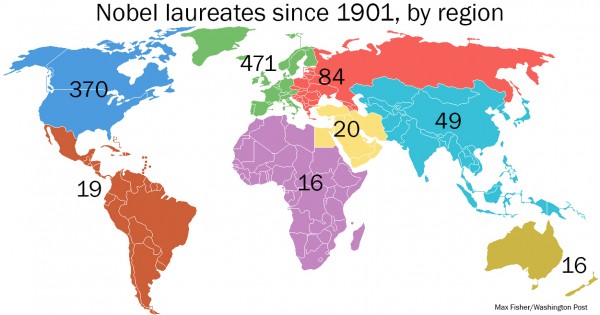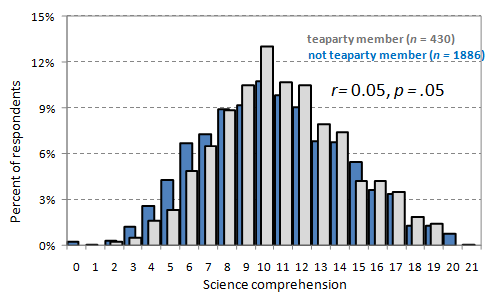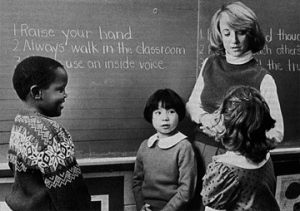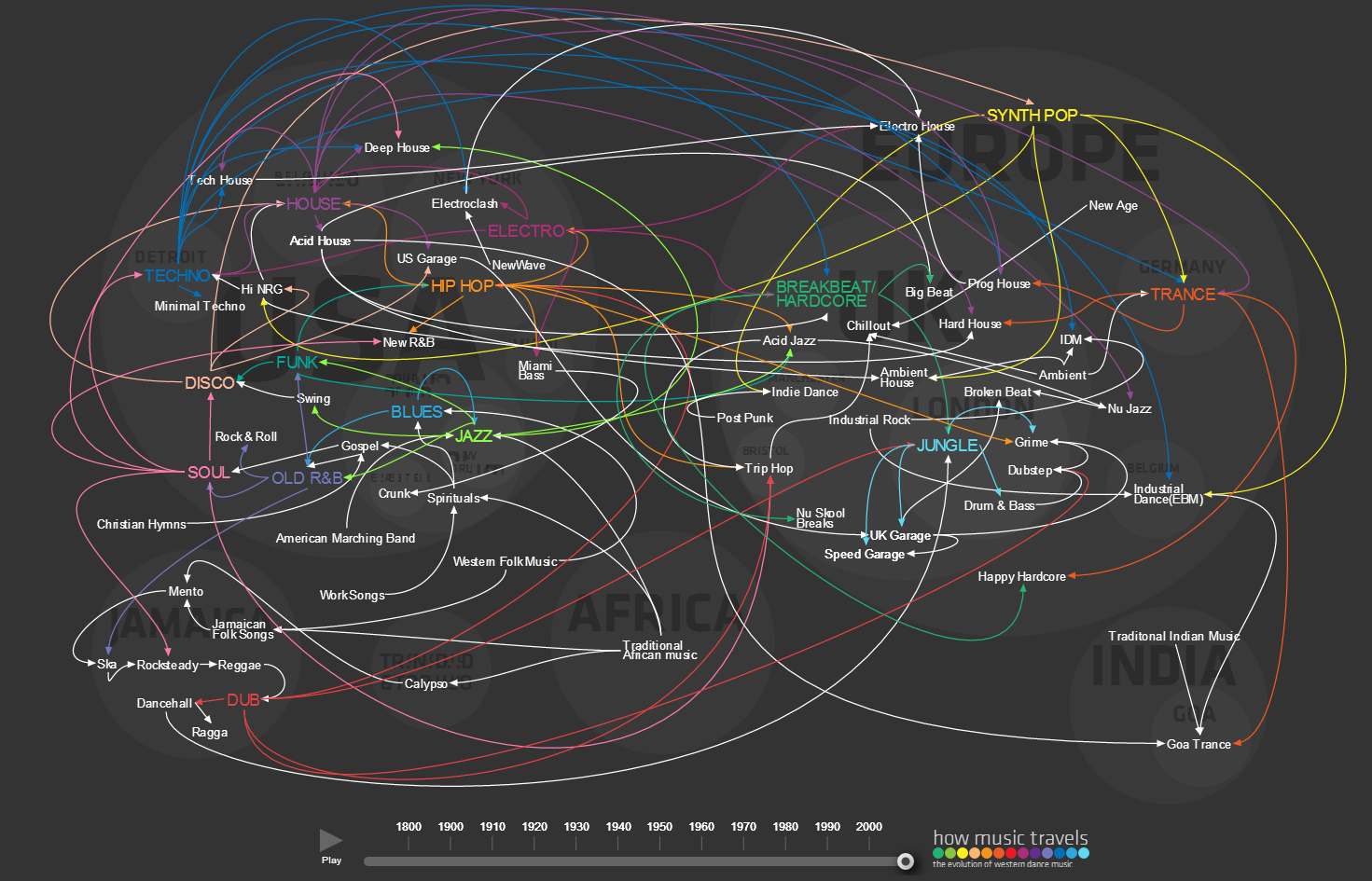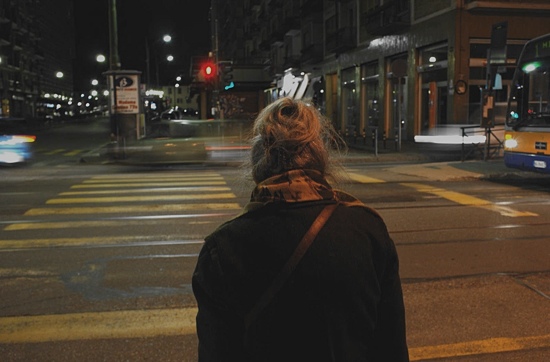From The Washington Post:
• Nobel prizes have been awarded to people from 72 different countries. But more than half all Nobel laureates come from only three countries: the United States, Britain and Germany.
• More than one in every three Nobel laureates is from the United States. Put another way, the United States has 4 percent of the world’s population and 34 percent of its Nobel laureates.
• All of Asia, Africa, Latin America and the Middle East combined have only 104 Nobel laureates. These regions hold 81 percent of the world’s population but only 10 percent of its Nobel laureates.
• 82 percent of Nobel laureates are from Western countries (Western Europe, North America, Australia or New Zealand). If you add in Eastern Europe, it’s 90 percent.
• Just over half of all Nobel laureates are from Europe: 54 percent. Of those, most are from Western Europe, which has had 45 percent of all laureates. You can see this in the giant swathe of green in the circle chart above.
• About half of the world’s Nobel laureates are from the Anglosphere: Britain, United States, Canada, Australia and New Zealand.
• The second most common native language among Nobel laureates is German; 152 laureates are from German-speaking countries.
• The region with the fewest Nobel laureates per capita is Africa. There is one African Nobel prize per 62 million Africans alive today. By comparison, there is one American Nobel prize per 900,000 Americans alive today.
• The Middle East has had 20 Nobel laureates: 12 Israelis, four Egyptians, one Palestinian, one Iranian, one Turk and one Yemeni. Ironically, it also has the largest proportion of peace prize winners: eight of the 20 Middle Eastern laureates are peace-prize winners.
• The top 10 countries with the most Nobel laureates, in order. Pay attention to how top-heavy this list is; the numbers drop precipitously:
1. United States (347 Nobel laureates)
2. Britain (120)
3. Germany (104)
4. France (65)
5. Sweden (30)
6. Russia (27)
7. Switzerland (26)
8. Canada (23)
9. Austria (22)
10. Italy (20)
What isn’t mentioned is the amount of Jewish recipients: “At least 193 Jews and people of half- or three-quarters-Jewish ancestry have been awarded the Nobel Prize, accounting for 23% of all individual recipients worldwide between 1901 and 2013, and constituting 37% of all US recipients during the same period.”
This is pretty fascinating. Or should I be disturbed with the unequal distribution of Nobel Prizes?
